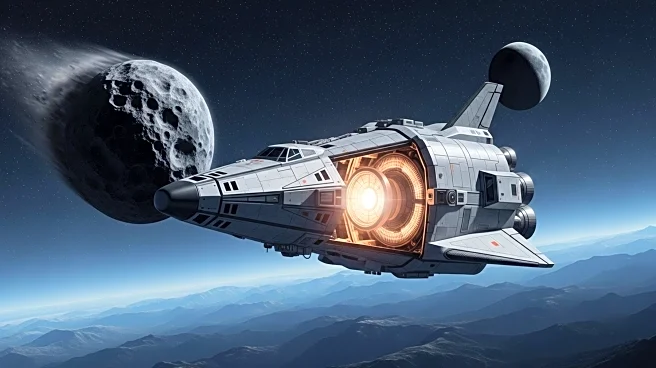What's Happening?
NASA scientists are considering a nuclear disruption mission to prevent the asteroid 2024 YR4 from colliding with the moon. Initially discovered in December 2024, the asteroid posed a threat to Earth, but its likelihood of striking the planet has been reduced to 0.00081%. However, the chances of it impacting the moon on December 23, 2032, have increased to over 4%. The proposed mission involves using nuclear explosive devices to blow the asteroid apart, preventing potential damage to Earth-orbiting satellites and lunar missions. This plan was detailed in a study published on the arXiv preprint server.
Why It's Important?
The consideration of nuclear devices for asteroid deflection highlights the critical need for effective planetary defense strategies. A successful mission could safeguard vital space infrastructure and protect lunar exploration efforts, such as NASA's Artemis program. However, the use of nuclear weapons in space raises significant legal and ethical concerns, given international treaties like the Outer Space Treaty. The proposal underscores the urgency of addressing cosmic threats while balancing technological innovation with global security and environmental considerations.
What's Next?
The nuclear disruption mission could be launched within four years, allowing time for further research and international collaboration. Scientists will need to navigate legal challenges and refine the technology to ensure safe deployment. Alternative methods, such as deflection missions, remain under consideration but are deemed impractical due to time constraints. The development of these strategies will require ongoing dialogue among global stakeholders to ensure preparedness for future asteroid threats.
Beyond the Headlines
The ethical implications of using nuclear devices in space extend beyond immediate planetary defense concerns. The potential for radioactive fallout and the fragmentation of asteroids into smaller threats necessitates careful consideration of long-term environmental impacts. Additionally, the proposal may influence future space policy and international cooperation in addressing cosmic hazards, prompting discussions on the balance between technological advancement and global security.











